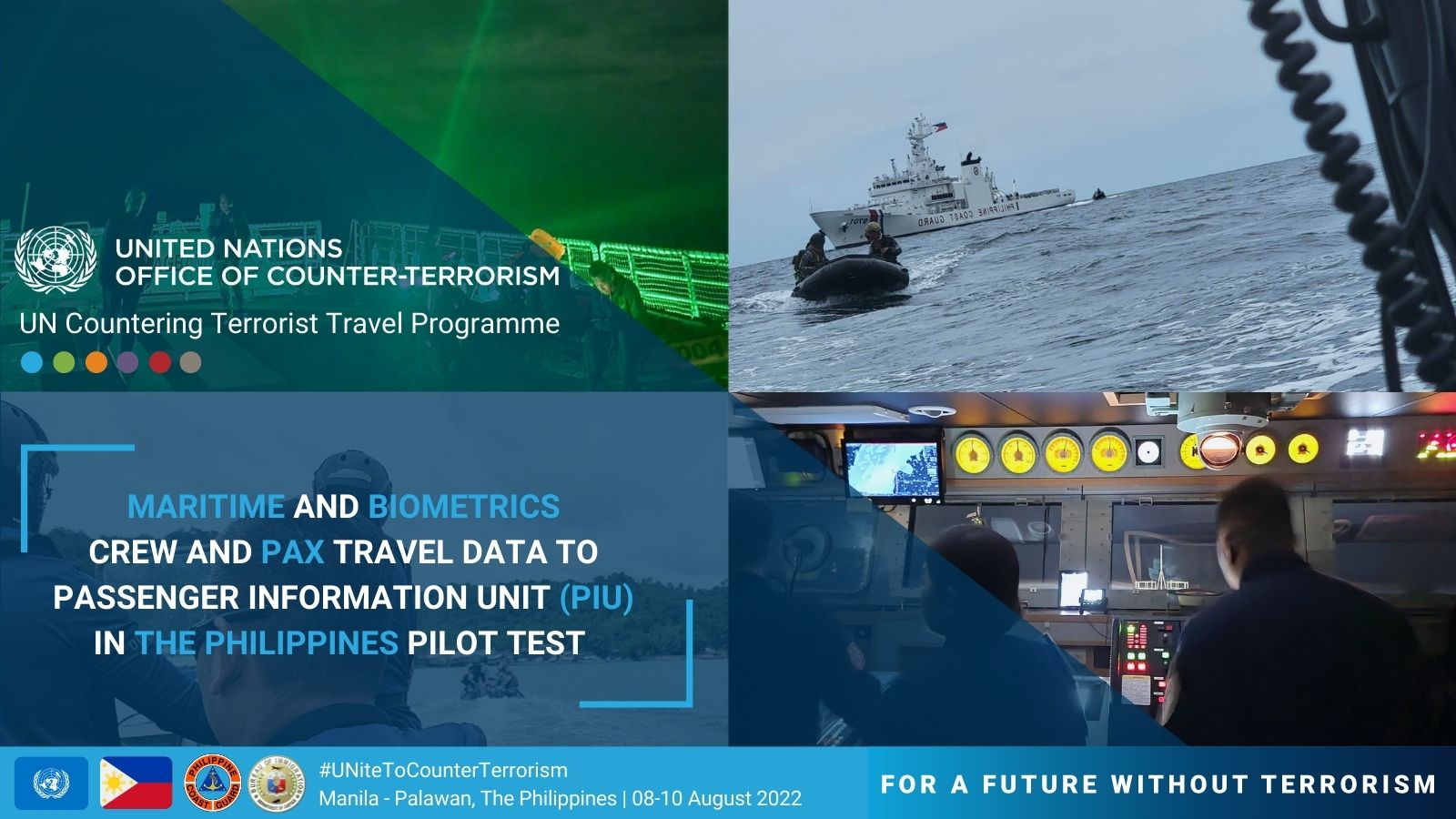Countering Terrorist Travel Programme and The Philippines Conduct a Joint Scoping Mission in Palawan to Test Technical Feasibility of Adding a Maritime and Biometrics Capability to The Philippines Passenger Information Unit (PIU)

From 8 to 10 August 2022, the Countering Terrorist Travel (‘CT Travel’) Programme together with the Bureau of Immigration and the Coast Guard of the Republic of the Philippines conducted a joint three-day scoping mission in the southeast Philippines to validate the technical feasibility of collecting and transmitting maritime crew and passenger biographical and biometrics data real-time to the passenger information unit of the Philippines, named APIS Operations Center (APOC), located in Manila. The Philippines Coast Guard availed of its flagship vessel, BRP Teresa Magbanua for the mission, enabling the joint team to reach remote locations as far as 10 nautical miles from the shore to successfully transmit test data in various maritime and coastal environments with very low or intermittent internet connectivity.
The scoping mission is a key milestone for CT Travel in its aim to expand the scope of its comprehensive assistance to UN Member States.
Currently, CT Travel assists Member States in developing national capabilities to process and analyze Advance Passenger Information (API) and Passenger Name Record (PNR) from air carriers for the purposes of detecting and countering terrorists and serious criminals. With the expansion into the maritime domain, CT Travel aims to support the implementation of the rest of Security Council resolution 2396 by enabling the collection and processing of maritime API as well as biographical and biometrics data from travelers on small vessels.
"We deeply appreciate our close partnership with the UN Office of Counter-Terrorism and the support of the CT Travel Programme enabling our construction of APOC that is preparing to go live with air travel data in the next few months. Expanding the scope to address the foreign terrorist fighters (FTFs) threat in the maritime domain is an urgent priority and integrating this capability to APOC will help us comprehensively address the FTF threat across multiple modes of travel," stated Mr. Florentino P. Manalastas Jr., the Officer in Charge of the Anti-Terrorism Council Program Management Center in the Office of the President of the Philippines.
The Countering Terrorist Travel Programme, a flagship global initiative of the United Nations Office of Counter-Terrorism (UNOCT) follows an ‘’All-of-UN’’ approach to provide comprehensive, yet tailored assistance to beneficiary Member States, with the support of six implementing partners United Nations Counter-Terrorism Executive Directorate (CTED), the United Nations Office on Drugs and Crime (UNODC), the International Civil Aviation Organization (ICAO), the United Nations Office of Information and Communication Technology (OICT), the International Criminal Police Organization (INTERPOL), and the International Organization for Migration (IOM).
Currently supporting 51 beneficiary Member States across the globe, the CT Travel Programme assists beneficiary Member States in enhancing their national capabilities to detect and intercept terrorists and serious criminals by using passenger travel data and cross-checking against INTERPOL, and other international and national databases of known and suspected terrorists and criminals, in accordance with Security Council resolutions 2178 (2014), 2396 (2017), and 2482 (2019), as well as ICAO standards and recommended practices, other international law obligations, relevant privacy laws, and human rights principles. The Programme also promotes regional cooperation through enhanced information exchange and sharing of lessons learned and good practices.

